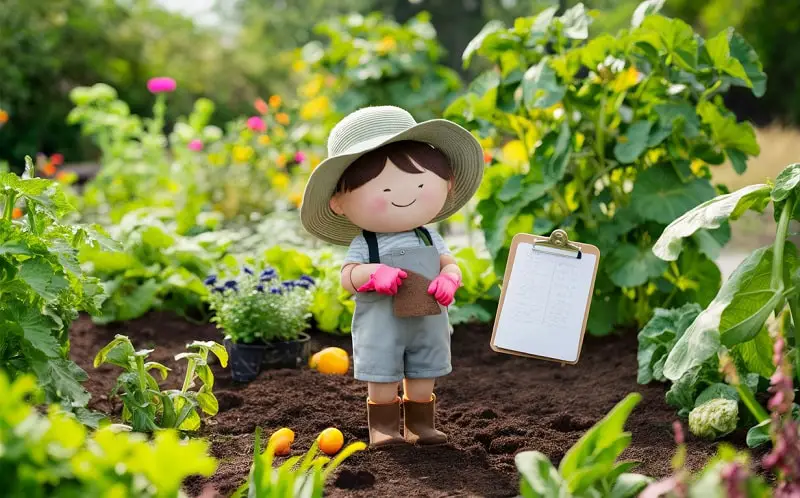Gardening is more than just a hobby; it’s a way to connect with nature, relieve stress, and beautify your surroundings. Whether you’re dreaming of a lush backyard oasis or a small herb garden on your windowsill, getting started can feel overwhelming.
But don’t worry! With the right guidance and some essential tips, you’ll be well on your way to creating a thriving garden.
Gardening Tips Every Beginner Should Know
In this article, we’ll explore top gardening tips that every beginner should know to ensure success from the very first seed you plant.
1. Start Small and Simple
One of the most common mistakes beginners make is biting off more than they can chew. It’s tempting to plant a vast array of flowers, vegetables, and herbs, but this can quickly become overwhelming. Instead, start small. Choose a manageable space and focus on a few types of plants that are easy to grow. This way, you’ll learn the basics without getting discouraged by a garden that’s too much to handle.
2. Understand Your Climate and Soil
Before you start planting, it’s crucial to understand the climate and soil conditions of your area. Different plants thrive in different environments, so knowing your hardiness zone will help you choose plants that are likely to succeed.
Additionally, soil quality varies widely, so you may need to test your soil’s pH level and adjust it accordingly. Amending your soil with compost or organic matter can make a significant difference in your garden’s health.
3. Choose the Right Plants
Not all plants are created equal, especially when it comes to beginners. Opt for plants that are hardy and low-maintenance. Some good options include marigolds, sunflowers, lettuce, and herbs like basil and mint. These plants are not only easy to grow, but they also provide quick rewards, which is perfect for keeping beginners motivated.
4. Invest in Quality Tools
While it might be tempting to go for the cheapest tools available, investing in quality gardening tools will save you time and frustration in the long run. Essential tools for beginners include a sturdy trowel, a good pair of gloves, pruners, and a watering can. These basic tools will make your gardening tasks much more manageable and enjoyable.
5. Water Wisely
Watering is a crucial aspect of gardening, but many beginners either overwater or underwater their plants. Understanding your plants’ water needs is key. Most plants prefer consistent moisture but not soggy soil. A good rule of thumb is to water deeply and less frequently, which encourages roots to grow deeper and stronger. Using mulch can also help retain moisture and reduce the need for frequent watering.
6. Learn the Art of Pruning
Pruning might seem intimidating at first, but it’s an essential practice for maintaining a healthy garden. Pruning involves removing dead or diseased parts of the plant, encouraging new growth, and improving air circulation. Each plant has its own pruning needs, so it’s important to learn when and how to prune the specific plants in your garden.
7. Fertilize for Success
Plants need nutrients to grow, and while some nutrients are naturally available in the soil, many gardens require additional fertilization. There are a variety of fertilizers available, from chemical to organic options. Beginners may find organic fertilizers more forgiving, as they release nutrients slowly and are less likely to burn plants. Regularly fertilizing your garden can result in more vigorous growth and a more bountiful harvest.
8. Embrace Companion Planting
Companion planting is a method of planting different crops in close proximity to benefit each other. For example, planting basil next to tomatoes can improve the flavor of the tomatoes and deter pests. This age-old technique can help you make the most of your garden space and reduce the need for chemical pesticides. As a beginner, start with a few well-known companions to see how they can improve your garden’s health.
9. Stay on Top of Weeds
Weeds are the bane of every gardener’s existence, but staying on top of them is essential, especially for beginners. Weeds compete with your plants for nutrients, water, and light, so it’s important to remove them regularly. The best time to weed is after a rain when the soil is soft and the weeds are easier to pull. Mulching can also help suppress weed growth and reduce the amount of time you spend weeding.
10. Be Patient and Observe
Gardening is a process that requires patience and observation. Plants take time to grow, and not everything will go perfectly the first time. Pay attention to how your plants respond to their environment, and don’t be afraid to make adjustments as needed. Gardening is as much about learning as it is about growing, so embrace the journey and enjoy watching your garden evolve over time.
Conclusion
Starting a garden is an exciting journey filled with both challenges and rewards. By following these top gardening tips, you’ll be well-equipped to nurture a thriving garden that brings you joy and satisfaction. Remember to start small, understand your environment, choose the right plants, and invest in quality tools.
With patience and careful observation, your garden will flourish, and so will your love for gardening. Whether you’re growing vegetables, herbs, or flowers, these tips will help you create a garden that’s not only beautiful but also a source of pride and accomplishment.
Happy gardening!
